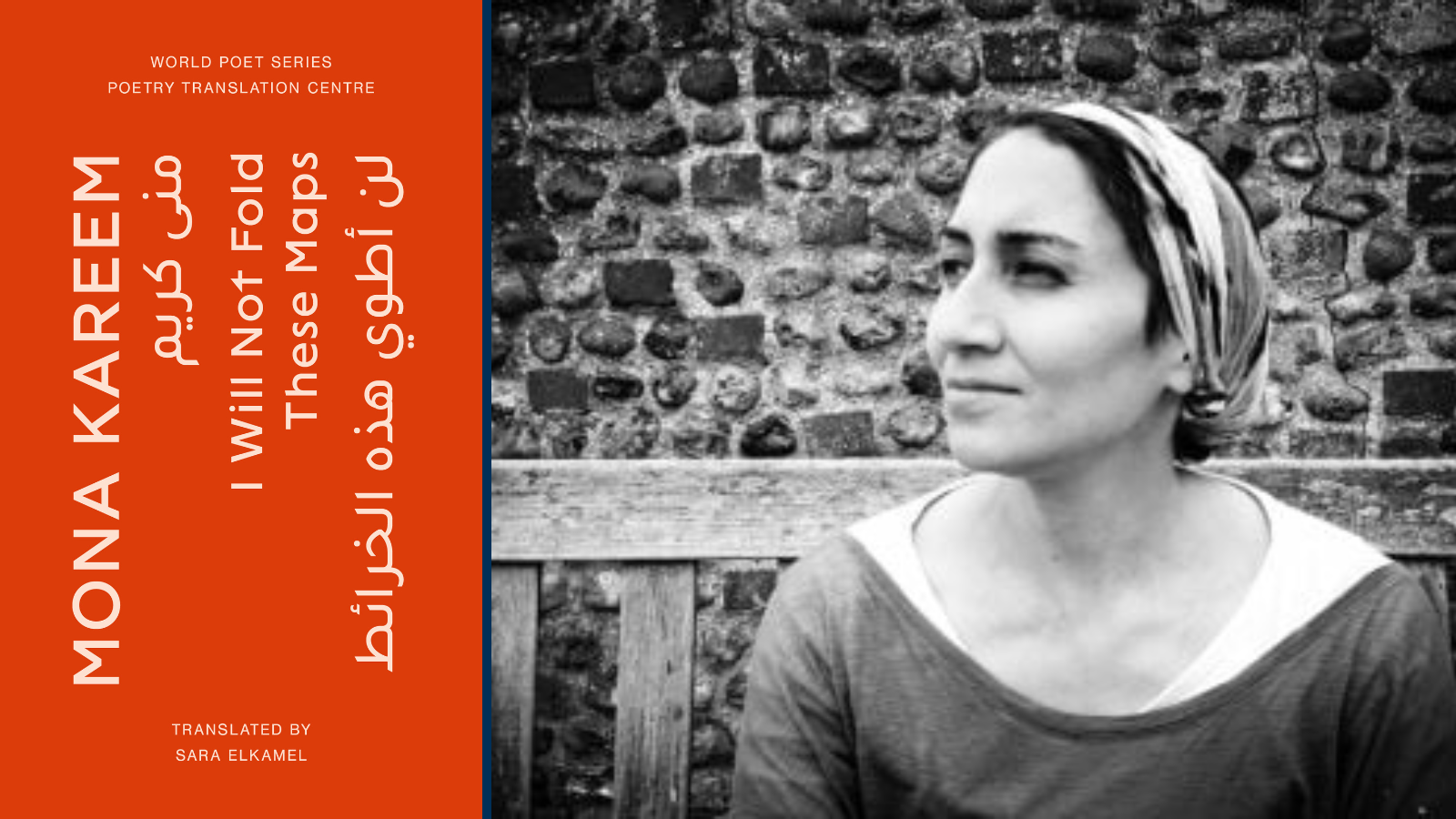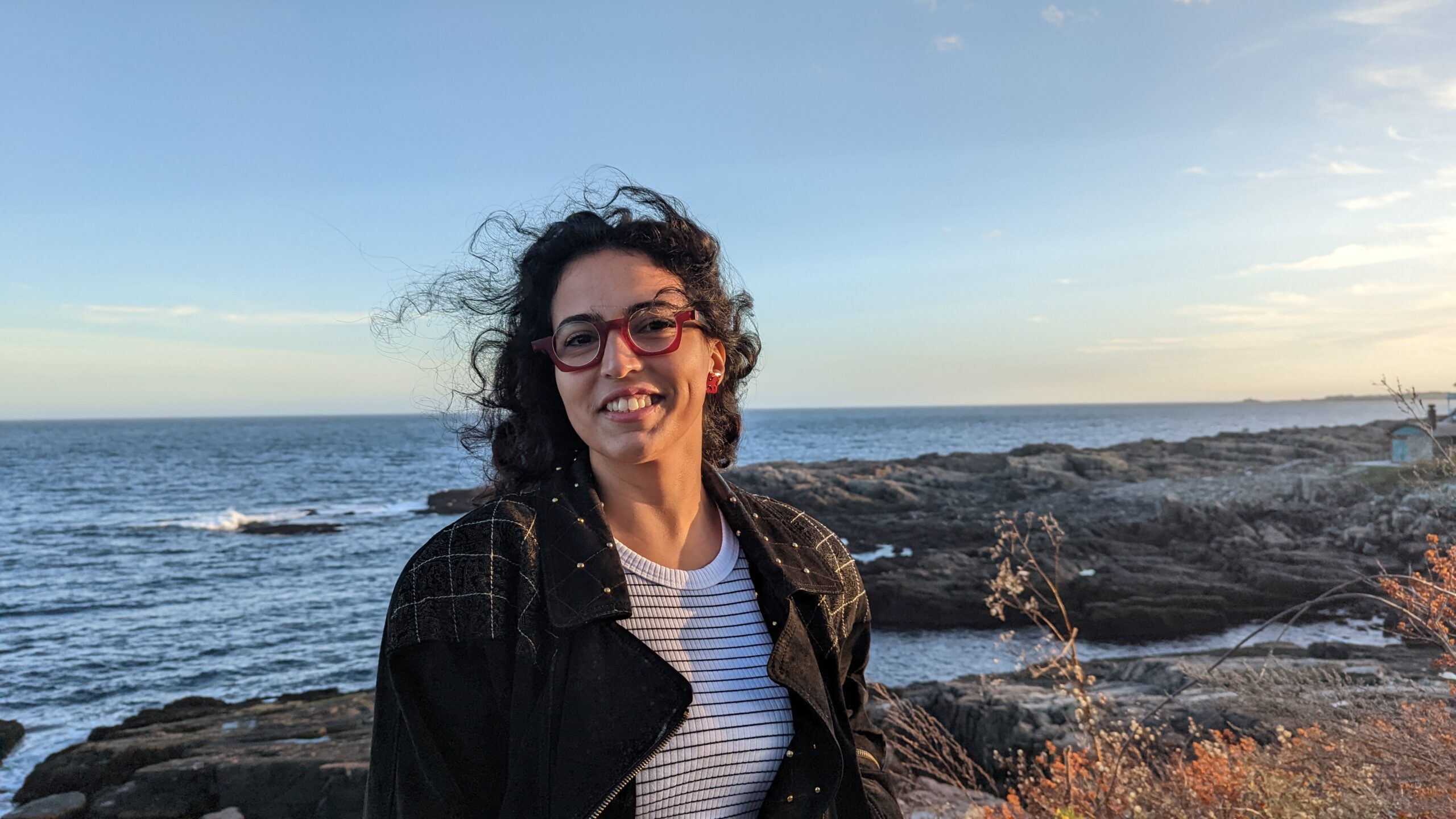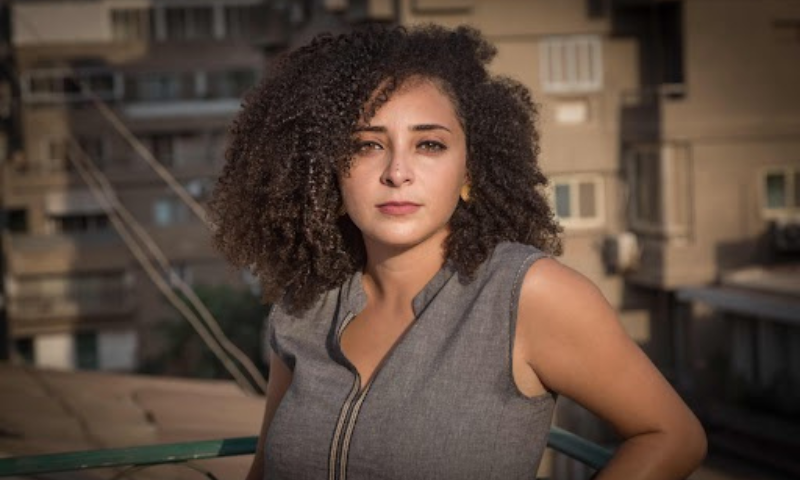I was already an admirer of Mona Kareem’s writing long before I began editing her new bilingual poetry collection, I Will Not Fold These Maps, translated by Egyptian poet-translator Sara Elkamel. Her voice is at once confident and vulnerable, whether sober or tongue-in-cheek—and I am drawn to it all.
I found it hard not to fall for Mona’s poems. With each close reading the editing demanded, her lines drew me deeper, in both the Arabic original and English translation. I appreciate the subtle references to war and killing, how the reality of executioners, military commanders, soldiers and battlefields is often embedded in the language of pillows and sleep, as though these realities are simply part of the dreamscape. In her poem Remains, she writes:
Darkness is sleep’s pillow,
and departure is drenched in sweat;
What if we could fasten peace
to the psyche of the executioner?
In the same poem, we meet refugees, witness both their tears and their smiles, and I am grateful for her affirmation that art is salvation: ‘We need music here / We need it more than trucks of bread’.
So mesmerised have I been by her poems that often, after a session spent editing them, I would find myself scrabbling around for a pen, to record new lines of my own that suddenly began to flow. Perhaps it is the after effects of her infectious energy so evident in her writing—in some of her more recent poems, like My Body is My Vehicle, it is difficult not suppress a smile: ‘What do I do with this vehicle of mine? I cannot park her, abandon her anywhere!’— especially when I can so clearly visualise Mona’s own easy grin.
Though ultimately this book is a great act of co-creation undertaken by the poets and everyone involved in publishing it, the process of editing it was at once both intimate and isolating. While as a translator I have often felt closer to the text than even the writer themselves, poring over individual words and agonising in the liminal world of no-meaning, as an editor, I am a footstep away from the circle of original creation that Mona and Sara inhabit. With their permission, I am warmly welcomed across the perimeter to present my observations and musings, but theirs is a bond that is fused.
And this is a marvellous fusion—yet another sign that the poems in this collection are a true collaboration between two skilled artists. With Mona being an translator herself, both into and out of Arabic (she is the translator of Iraqi poet Ra’ad Abdulqadir’s collection, Except For This Unseen Thread: Selected Poems, published in 2021 by Ugly Duckling Press), she and Sara were able to discuss both versions of each poem in detail. When it came to my input, the dialogue was ultimately three-way, even if the more meticulous discussions on the translation took place between Sara and I. We pondered word choice, syntax, punctuation, and the overall selection, collated from Mona’s four collections in Arabic as well as poems that were newer and as yet unpublished. We mapped out a structure for the book, paying close attention to its ebb and flow, pleasingly in sync with our separate decisions.
During the process of working with Sara, I have grown increasingly in awe of her talent as a writer and translator. A deeply reflective reader, she infuses the English poems with a language that re-interprets the images and ideas, opening them up to sublime possibilities, while guarding the delicate balance of the rhythm and sounds of the Arabic. Reading the translations, her work seems effortless, but her editor(s) will recognize the level of attention that has gone into the work, the rewrites, the myriad tweaks, shaping each line and word almost to the last possible minute. A true sculptor, her work never ends. It is alive, ever evolving and she doesn’t let it rest. And indeed, our collaboration on the edits, going back and forth with queries, suggestions, imaginative leaps, may at times also seem imperceptible, but click an imaginary ‘undo’ button and the poem would suddenly come to life, words hurriedly dressing and undressing to reveal previous versions like actors performing in reverse.
It can be beautiful, this act of creation, whatever part we find ourselves playing. And the synergy created by this particular collaboration has been a joy to partake in. This is poetry that I am led back to again and again, like a drug that has consistently proven its potency.
Nashwa Nasreldin is a writer, editor, and a translator of Arabic literature. She is the translator of the collaborative novel, Shatila Stories, from Peirene Press, and Talib al-Rifae’s novel Shadow of the Sun, which is forthcoming from Banipal Books. She is a contributing editor of ArabLit.org and ArabLit Quarterly, and holds an MFA in Poetry from the Vermont College of Fine Arts.



